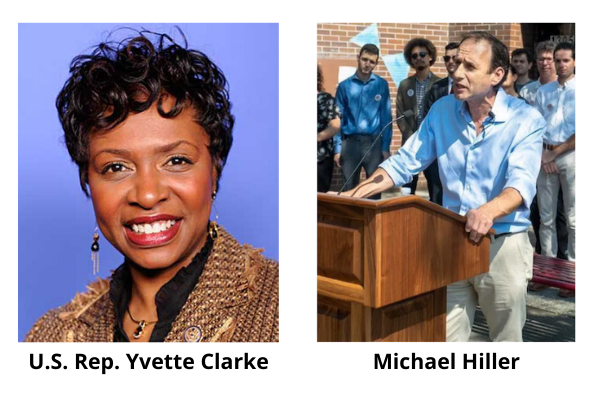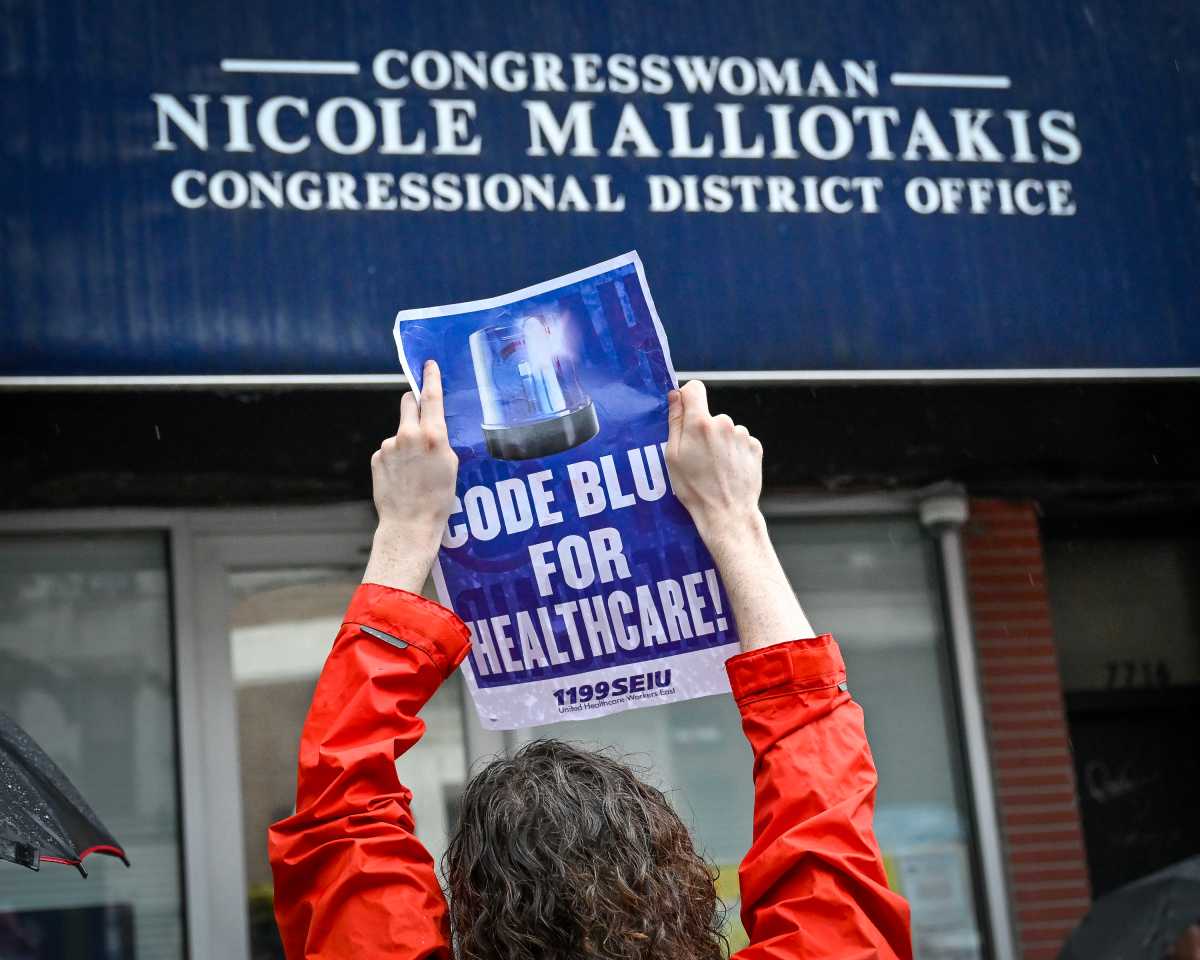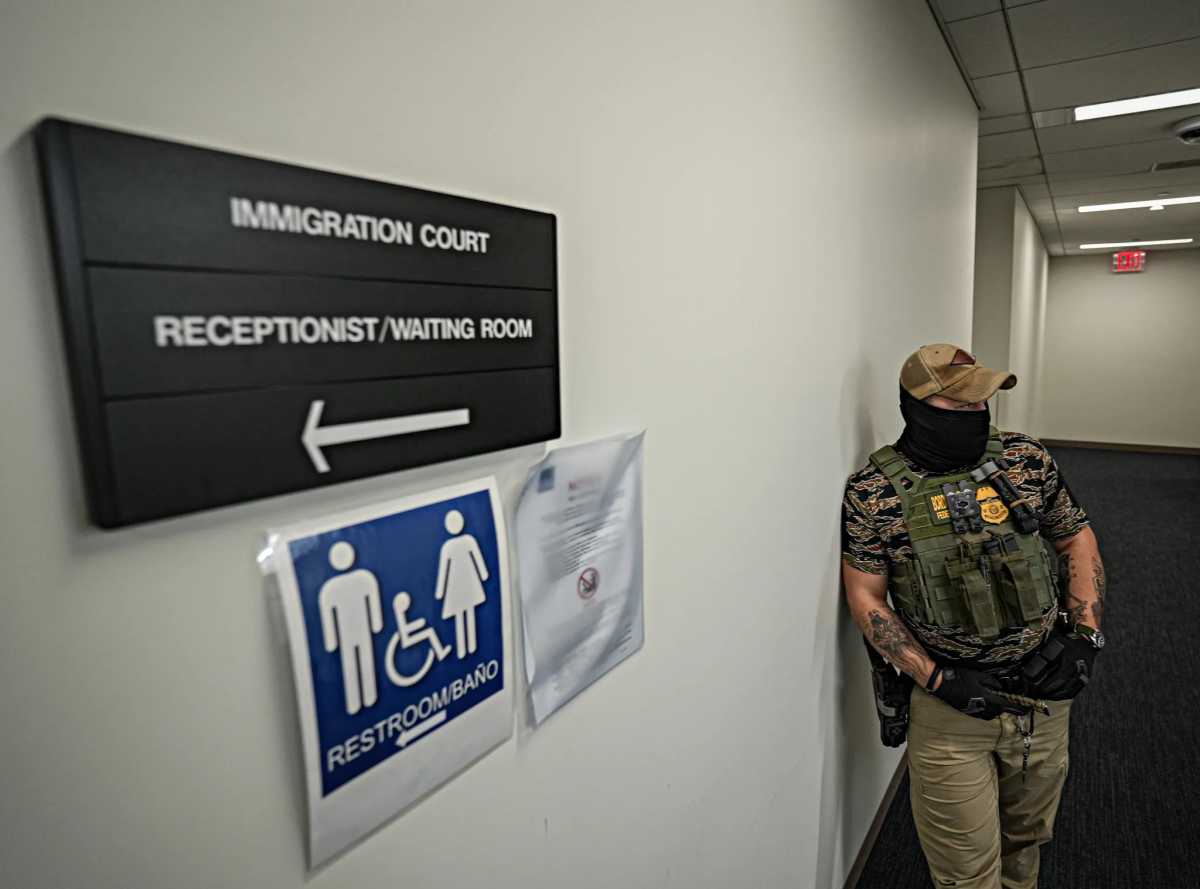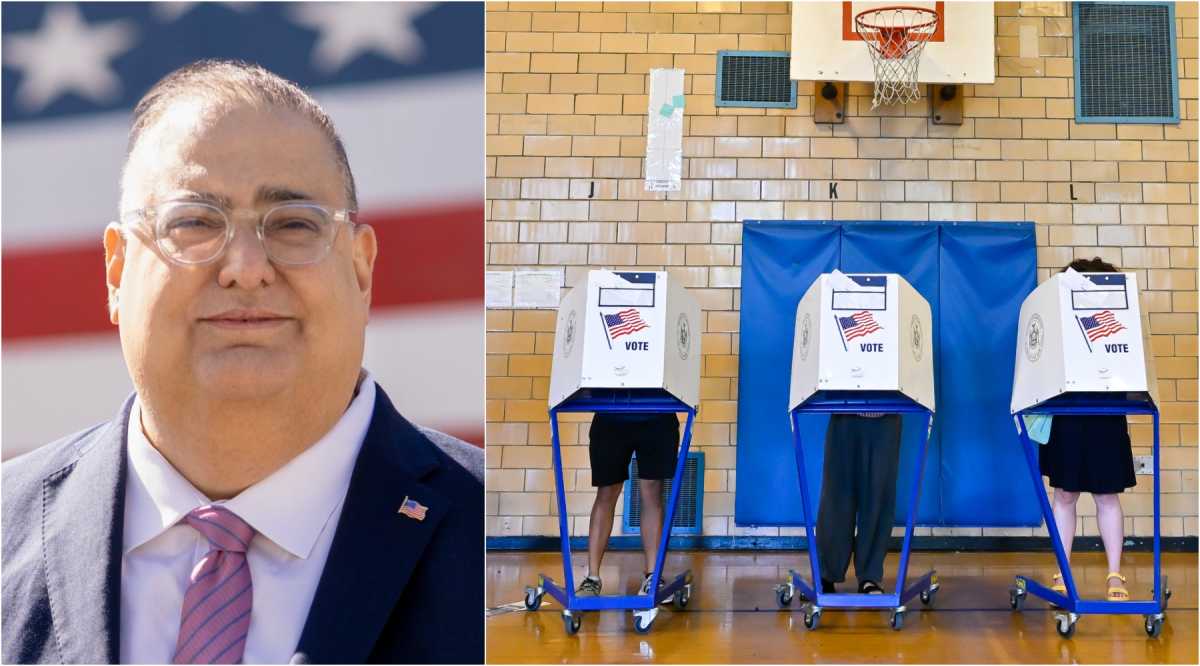U. S. Rep. Yvette Clarke and Michael Hiller, one of her challengers in next year’s Congressional Democratic Party primary, have both charged strong out of the gate with policy and issue plans.
Clarke recently introduced major legislation with her Affordable Housing and Area Median Income Fairness Act (HR-4984) to help counter skyrocketing rent prices in New York and other major American metropolitan areas.

The measure addresses Area Median Income (AMI)—a statistic set by the Department of Housing and Urban Development— to set the basis for affordable housing income caps and rent prices for programs from the Housing Trust Fund to the Low Income Housing Tax Credit.
AMI in New York City has long been a contentious issue in what constitutes affordable housing in that it includes more well-to-do counties such as Westchester and Rockland Counties as well as New York County (Manhattan). This drives up what constitutes affordability incomes in Central Brooklyn neighborhoods, thus putting a number of new apartments out of reach for families from these communities.
Clarke’s bill includes adjustments to AMI that will lower income caps and make rent prices more affordable for both existing and new affordable units.
The Affordable Housing and Area Median Income Fairness Act will make housing more affordable by:
- fixing AMI technicalities, including removing the erroneous statutory inclusion of Westchester and Rockland Counties in New York City’s AMI;
- exempting local jurisdictions from HUD’s High Housing Cost Adjustment, which currently raises rent levels in major urban areas;
- addressing the knowledge deficit by requiring enhanced transparency from developments that take advantage of affordable housing tax credits;
- directing HUD to comprehensively assess alternatives to the current AMI system; and
- addressing the structural issues of affordable housing, including by significantly increasing funding for key federal affordable housing programs
“Affordable housing has become out of reach for so many New Yorkers and in urban areas across America—when I’m home in Brooklyn, constituents have shared concerns with me about being ‘priced out’ of their neighborhoods. As cities grow and evolve, the ability to afford having a roof over someone’s head should not be a luxury only provided to those whose income is considered upper class,” said Clarke.
“My legislation, The Affordable Housing and Area Median Income Fairness Act, will bring some much-needed course-correction to curb rental rates that have disproportionately ballooned over the years for Brooklynites and for hard-working people who call other cities home,” she added.

Hiller, a social justice advocate and lawyer, this week rolled out some details about his plans to help veterans and women by tackling some of the specific issues that those groups tend to face.
Hiller introduced his proposals for veterans in the same week as Veterans Day and saw it as a chance to remind people of the serious problems faced by so many who served this country. His statement went on to highlight the growing number of veteran suicides and broken promises made to service members, including those living in Brooklyn.
To combat some of these veterans’ issues, Hiller proposed better health services and funding and
modernizing Veterans Affairs. Hiller has been a vocal advocate for legalizing cannabis, once even trying to take the United States attorney general to court over the alleged harm federal cannabis laws did to a veteran and two children, so it comes as no surprise that he backs Rep. Barbara Lee’s (D-CA) Veterans Medical Marijuana Safe Harbor Act.
While there have been decreases in the number of homeless veterans, about 38,000 veterans were homeless on a single night in America in January 2018, according to the 2018 Annual Homeless Assessment Report. Hiller wants to make sure there is a “zero tolerance” policy of veterans becoming homeless.
He supports assistance with transitioning back to civil life and job training, retirement and disability support, strengthening the GI Bill and Well-Being For Veterans Act to make sure veterans have access to education and different outside resources, and specific support for servicewomen. Homeless female veterans have far outpaced male homeless veterans in recent years, with about 40,000 homeless female veterans projected by 2025, according to the National Center on Homelessness Among Veterans.
Women not only deal with the same posttraumatic stress disorder problems that their male counterparts do from their service, but they also have to deal with military sexual trauma while the vast majority of men do not.
According to studies cited by NBCNews, about a quarter of female veterans will develop mental health struggles stemming from sexual trauma that occurred while they served their countries. Women as a whole are a historically marginalized group still facing problems of equality and sexism.
To address this, Hiller has what he calls a Women’s Bill of Rights, a 15-point plan meant to help protect
women from harm and unfair practices that discriminate, including a provision for the LGBTQIA+ community.
Some of the points are basic but would bolster longstanding or recently expired laws with federal legislation, like solidifying the reproductive rights set forth by Roe v. Wade, making sure women receive the same pay that men do for the same work, preventing women from paying more for the same or similar products marketed to men, criminalizing revenge porn, automatic time behind bars for rape and other forms of sexual assault, and making it a federal crime for a boss to extort a female employee into sexual relations by threatening to fire or not promote her.
The bill of rights would also give women paid maternity leave, prenatal testing care, accurate medical information about their own bodies during medical visits, and allow federal funds to be used to help with abortions. The Hyde Amendment stops federal funding of abortions with a few exceptions, and some states have been trying to make it harder for women to get abortions through limited access, prohibiting doctors from providing medically-sound details, and forcing women to undergo medically unnecessary and embarrassing procedures beforehand.
The 9th Congressional District includes Brownsville, Crown Heights, East Flatbush, Flatbush, Kensington, Park Slope, Prospect Heights, Midwood, Sheepshead Bay, Marine Park, Gerritsen Beach and Prospect Lefferts Gardens.










